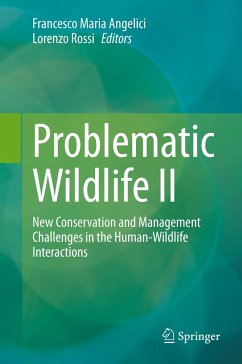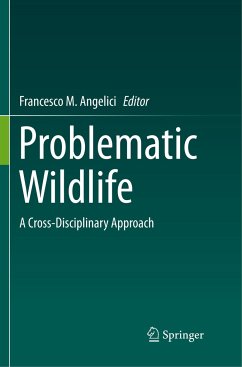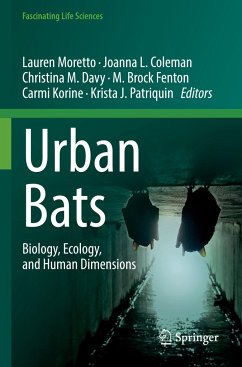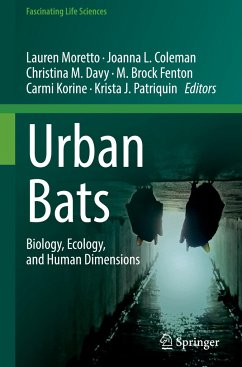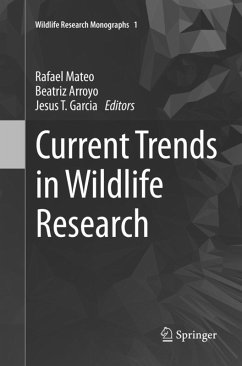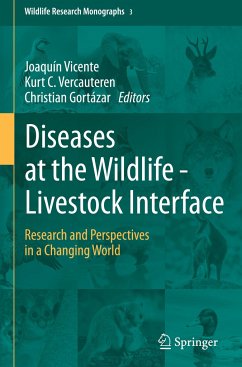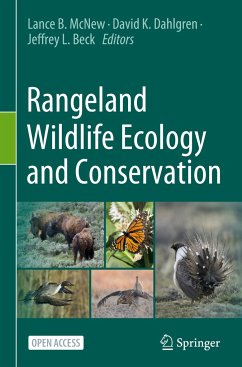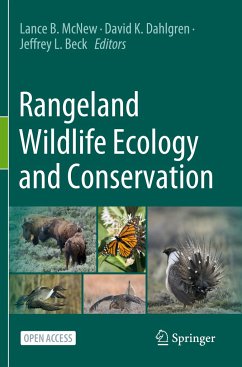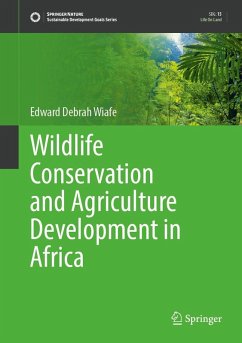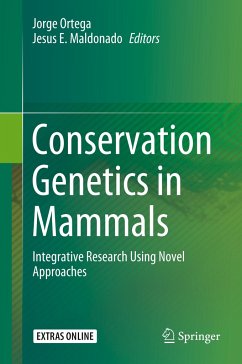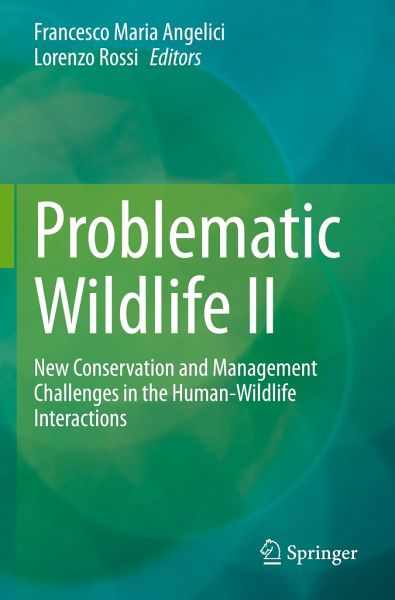
Problematic Wildlife II
New Conservation and Management Challenges in the Human-Wildlife Interactions
Herausgegeben: Angelici, Francesco Maria; Rossi, Lorenzo
Versandkostenfrei!
Versandfertig in 6-10 Tagen
151,99 €
inkl. MwSt.

PAYBACK Punkte
76 °P sammeln!
In a world where habitats are constantly changing and the impact of anthropization on the environment is increasingly intense, interactions between human and wildlife are becoming more and more complex. Some species pose problems for human activities while many others need to be helped in order to continue to exist.This book follows the first volume called 'Problematic Wildlife', edited by F.M. Angelici and published by Springer in 2016, which has had considerable success with readers and critics.The volume includes 21 chapters divided into 7 parts devoted specific topics which are approached ...
In a world where habitats are constantly changing and the impact of anthropization on the environment is increasingly intense, interactions between human and wildlife are becoming more and more complex. Some species pose problems for human activities while many others need to be helped in order to continue to exist.
This book follows the first volume called 'Problematic Wildlife', edited by F.M. Angelici and published by Springer in 2016, which has had considerable success with readers and critics.
The volume includes 21 chapters divided into 7 parts devoted specific topics which are approached in a multidisciplinary way. There are both review chapters and specific cases, always bearing in mind the interest for an international audience.
The book is useful both for scientists, wildlife specialists, conservationists, zoologists, ecologists, university students, nature managers, and for those who live in contact with wildlife and its problems, such as farmers, shepherds, hunters, urban planners, and staff of parks and nature reserves.
Its ultimate goal is to offer scientific and pragmatic approaches to manage each categories of problematic species.
This book follows the first volume called 'Problematic Wildlife', edited by F.M. Angelici and published by Springer in 2016, which has had considerable success with readers and critics.
The volume includes 21 chapters divided into 7 parts devoted specific topics which are approached in a multidisciplinary way. There are both review chapters and specific cases, always bearing in mind the interest for an international audience.
The book is useful both for scientists, wildlife specialists, conservationists, zoologists, ecologists, university students, nature managers, and for those who live in contact with wildlife and its problems, such as farmers, shepherds, hunters, urban planners, and staff of parks and nature reserves.
Its ultimate goal is to offer scientific and pragmatic approaches to manage each categories of problematic species.



